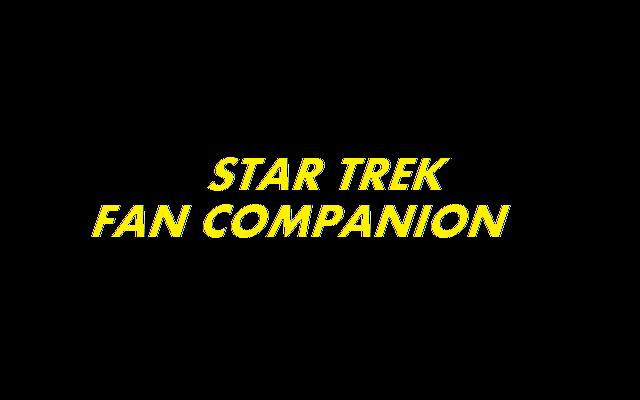I've always been interested in box office results. Recently I've begun taking a closer look at different sets of figures: the international box office and the adjusted-for-inflation box office, which is something I previously didn't care too much about but now view as a window into comparative popularity. This is going to be a look at how Star Trek movies look from these vantage points. All figures come from
Box Office Mojo, retrieved on 6/5/18. (B = billion, M = million)
The first list is the US box office report:
1.
Star Trek (2009) $257M
The first of the Abrams reboot series; this will be the most successful movie in two of the three lists.
2.
Star Trek Into Darkness (2013) $228M
The second in the Abrams reboot series will take the top slot in one of the two remaining lists.
3.
Star Trek Beyond (2016) $158M
This will be the third Abrams reboot series entry's best showing.
4.
Star Trek IV: The Voyage Home (1986) $109M
The obvious favorite among general audiences, it's never been as popular among fans. We might see why in another list.
5.
Star Trek: First Contact (1996) $92M
The second Picard flick and by far the most successful.
6.
Star Trek: The Motion Picture (1979) $82M
This total is going to have long legs. You'll see why its exposure caused problems.
7.
Star Trek II: The Wrath of Khan (1982) $78M
Its inordinate popularity with fans always seems to indicate it was more successful than the first one. It wasn't.
8.
Star Trek III: The Search for Spock (1984) $76M
Yet fans are never as excited about its sequel, even though it was about as successful.
9.
Star Trek Generations (1994) $75M
This meeting of Kirk and Picard was a huge disappointment in a lot of ways.
10.
Star Trek VI: The Undiscovered Country (1991) $74M
The final full cast appearance of the original Kirk crew made up a lot of ground from its predecessor, but not quite enough.
11.
Star Trek: Insurrection (1998) $70M
Surprisingly, despite its reputation the third Picard entry was about par for the course.
12.
Star Trek V: The Final Frontier (1989) $52M
The first real flop of the franchise.
13.
Star Trek Nemesis (2002) $43M
The second and far more disastrous was also Picard's fourth and last appearance.
Okay!
Now onto adjusted for inflation, in which we see some interesting things develop:
1.
Star Trek (2009) $316M
Still the most popular! This is officially Star Trek as a whole at its most popular.
2.
The Motion Picture (1979) $300M
Here's the biggest surprise! Maybe it shouldn't be, being the oldest entry in the series, and therefore the greatest beneficiary of inflation. But here we see that the first and subsequently much-maligned movie in the franchise was also its most successful for years. Thirty years, to be exact!
3.
The Voyage Home (1986) $264M
And here we see just how popular this one really was!
4.
Into Darkness (2013) $250M
And here's where we see where all the fan outrage about Khan's second movie appearance comes from; it officially made more money, and thus had more exposure.
5.
The Wrath of Khan (1982) $245M
Just a little more, but that's a little too much competition for some.
6.
The Search for Spock (1984) $208M
When you look at the unadjusted box office, it looks like the follow-up follows more closely than in the adjusted box office.
7.
First Contact (1996) $189M
In the unadjusted box office this looks like a much more impressive hit.
8.
Beyond (2016) $170M
You can see how far this one fell in comparison. That's why it was so little talked about compared to its two predecessors.
9.
Generations (1994) $165M
But it still did better than this one.
10.
The Undiscovered Country (1991) $163M
Fans were so relieved to like a Star Trek movie again, they didn't really give this one its due.
11.
Insurrection (1998) $134M
It doesn't look like par for the course in the adjusted box office.
12.
The Final Frontier (1989) $120M
Although
Final Frontier doesn't look as bad in comparison from this vantage point.
13.
Nemesis (2002) $67M
Hard to make this one look good.
Okay!
Box Office Mojo doesn't have a full chart for international results (totals in parentheses include unadjusted results). Here's what's available:
1.
Into Darkness (2013) $238M ($467M total)
Here's where
Wrath of Khan fans really have kittens. It's technically the most successful Khan movie.
2.
Beyond (2016) $184M ($343M total)
Surprisingly, this ranks above the first Abrams on this list.
3.
Star Trek (2009) $128M ($385M total)
Still near the top, naturally.
4.
First Contact (1996) $54M ($146M total)
Unsurprisingly charting high here.
5.
Generations (1994) $42M ($118M total)
Here's where
Generations most looks like a winner.
6.
Insurrection (1998) $42M ($112M total)
And here's where you can see Picard made Star Trek more popular internationally than Kirk.
7.
Nemesis (2002) $24M ($67M)
Even the least successful one was more successful than the most successful original Kirk film on the list.
8.
The Undiscovered Country (1991) $22M ($96M total)
Which was the last one. So internationally,
Generations really was, comparatively, a huge hit, and original Kirk's biggest exposure, at least as far as Box Office Mojo knows.
And now you know!
